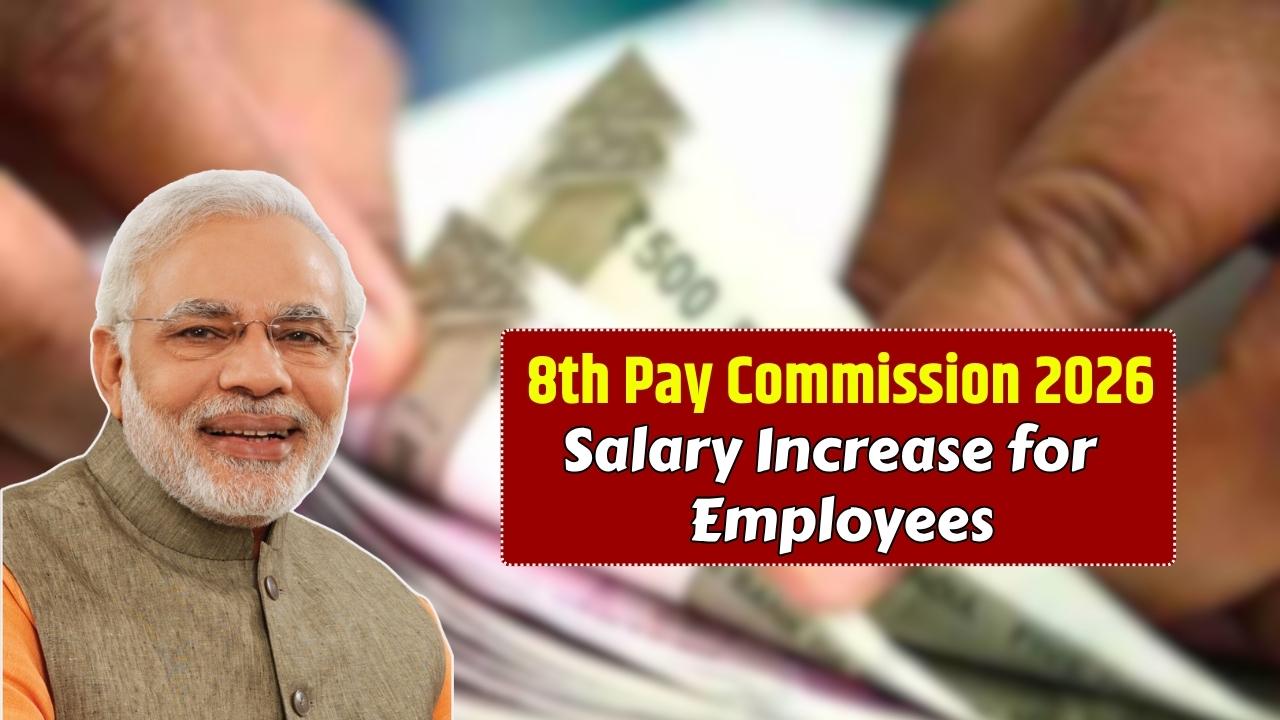The 8th Pay Commission is one of the most anticipated events for government employees in India. Every few years, the government revises salaries, allowances, and benefits for its employees, reflecting changes in the cost of living, inflation, and economic growth. The upcoming implementation of the 8th Pay Commission in January 2026 is expected to bring a significant salary hike, offering financial relief and improved earnings to millions of employees.
Background of the 8th Pay Commission
The Pay Commission is set up by the Government of India to recommend changes in the salary structure, allowances, and pension benefits of central government employees and pensioners. The 8th Pay Commission follows the legacy of its predecessors, including the 7th Pay Commission, which had a major impact on salaries and perks across government departments.
The primary aim of the commission is to ensure that employees are compensated fairly while keeping in mind the current economic scenario. It also addresses disparities, modernizes pay scales, and suggests allowances to improve the overall financial well-being of government staff.
Expected Salary Hike
Preliminary reports indicate that the 8th Pay Commission will recommend a substantial salary increase for employees. Many sources suggest an average hike of 20-25 percent across various pay levels, although the exact percentage may vary depending on the position, years of service, and the department.
The revision will not only impact the basic salary but also allowances, bonuses, and other perks. This increase is expected to boost the disposable income of employees, allowing them to save more and maintain a better standard of living. The revised salary structure is likely to be implemented in January 2026, making it a crucial period for employees to plan their finances.
Revised Pay Structure
The new pay structure under the 8th Pay Commission is expected to be more simplified and employee-friendly. There are talks of merging certain allowances into the basic pay to reduce complexity while still ensuring overall financial growth.
Employees at higher grades are expected to see significant hikes, while entry-level positions will also benefit from better pay and enhanced allowances. The commission may also consider performance-linked incentives to reward efficient and dedicated employees, creating a more motivating work environment.
Impact on Allowances
Allowances form a crucial part of government employee earnings, covering housing, travel, medical, and other needs. The 8th Pay Commission is likely to revise these allowances in line with inflation and rising costs of living.
House Rent Allowance (HRA) is expected to see a notable increase, especially in metropolitan cities, where rental expenses have surged. Transport and travel allowances may also be revised to reflect the current fuel and travel costs. Such changes will ensure that employees can maintain a comfortable lifestyle without feeling the pinch of rising expenses.
Benefits for Pensioners
The 8th Pay Commission will also have a direct impact on pensioners. Past pay commissions have always recommended proportional increases in pension benefits to ensure retired employees can sustain a dignified life.
Pensioners can expect a revised pension that aligns with the new pay scales, along with updated allowances. This step is particularly important given the increasing cost of healthcare and living expenses for senior citizens. The revision will provide financial stability to retired employees and improve their overall quality of life.
Economic Impact
The implementation of the 8th Pay Commission is expected to have a broader impact on the Indian economy. With a significant number of government employees receiving higher salaries, consumer spending is likely to rise. This can boost demand in various sectors such as real estate, automobiles, and consumer goods.
However, the government will need to balance this expenditure with fiscal prudence to ensure long-term economic stability. The pay hike, while beneficial for employees, will also require careful budgetary planning and allocation.
How Employees Can Prepare
With the expected salary hike, employees can start planning their finances to make the most of the revised pay. Key steps include reviewing current expenses, updating savings plans, and exploring investment opportunities.
Employees should also focus on debt management, as the increased income provides an opportunity to reduce liabilities. Proper financial planning will help individuals maximize the benefits of the 8th Pay Commission while securing their future.
Conclusion
The 8th Pay Commission 2026 promises to be a landmark development for government employees and pensioners. With a significant salary hike, revised allowances, and improved benefits, it is set to enhance the financial well-being of millions of individuals across India.
This revision is more than just a monetary increase; it reflects the government’s recognition of employee contributions and the need to ensure a fair, sustainable, and motivating pay structure. Employees can look forward to improved earnings, better savings potential, and a more secure financial future starting January 2026.
Disclaimer
The information provided in this article is based on reports, expert predictions, and publicly available data related to the 8th Pay Commission. The actual salary revisions, allowances, and implementation details may vary upon official government notification. Readers are advised to refer to official government sources for the most accurate and updated information.
